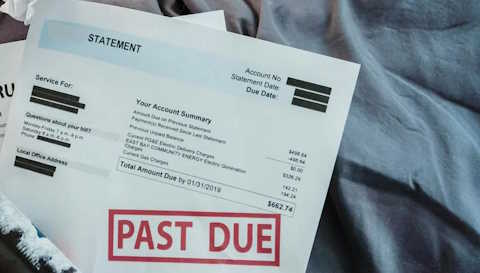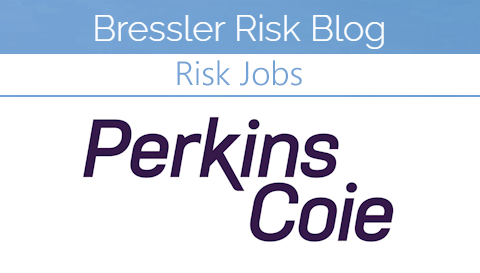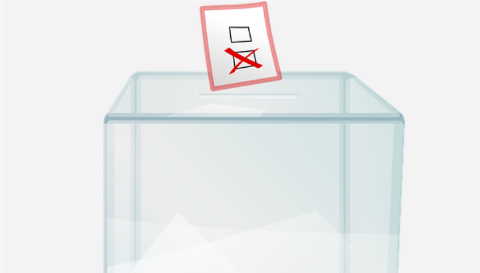
“Ga. Atty DQ’d From ‘Extremely Weird’ Pharma Fraud Case” —
- “A Georgia federal judge said Wednesday [10/1] she intends to disqualify a prominent defense attorney from representing a man charged with lying to investigators amid a criminal fraud probe into his employer, Hi-Tech Pharmaceuticals Inc., but would allow the company to continue footing his legal bills as he seeks new counsel.”
- “U.S. District Judge Amy Totenberg said that she could not allow attorney Bruce Harvey to represent Choat Soviravong thanks to Harvey’s past work for Hi-Tech’s CEO Jared Wheat, who is set to head to trial later this month on a slew of fraud charges related to the company’s sales of dietary supplements.”
- “But citing Soviravong’s right to the counsel of his choice and the strain on federal resources in assigning him a public defender in what’s already been an ‘extremely weird’ case, Judge Totenberg said she would let Hi-Tech keep covering his attorneys fees. The decision came despite protests from the government that the arrangement would compromise Soviravong’s ability to decide if he wanted to turn state’s witness for Wheat’s trial.”
- “‘I feel constrained,’ Judge Totenberg said, ‘but it doesn’t mean I don’t think that there needs to be a proper transition.’”
- “The wrangling over Harvey’s role in Soviravong’s criminal case came as the latest wrinkle in a nearly decade-long investigation into Wheat and his Norcross, Georgia-based company. First indicted in 2017, Wheat was accused of forging documents to deceive consumers into believing his products met U.S. Food and Drug Administration guidelines. He also faces money laundering counts and, until earlier this month, several controlled substance charges that were dropped by prosecutors.”
- “Soviravong’s prosecution, according to court records, stemmed from an interview with FDA and Internal Revenue Service investigators in 2014. Sorivavong, who is listed as Hi-Tech’s creative director on its website, was indicted five years later on charges that in the interview, he falsely said he wasn’t involved in the preparation of pharmaceutical certificates.”
- “Harvey’s representation of Soviravong during that interview would ultimately result in his removal from both his and Wheat’s criminal cases. One of Atlanta’s most in-demand defense attorneys, Harvey joined Wheat’s legal team shortly after his 2017 indictment, but prosecutors called for his removal about three months later since Harvey had already represented a potential government witness.”
- “On Wednesday, Hi-Tech attorney Arthur Leach told Judge Totenberg that he had erected a ‘Chinese wall’ around Harvey as soon as they realized the potential for a conflict, cutting him off from discovery almost immediately after he was hired.”
- “‘I explained to [Wheat] that you just can’t bring Bruce inside until this is resolved,’ Leach said.”
- “But federal prosecutor Nathan Kitchens argued that the conflict had created an ‘unrebuttable presumption’ that Harvey had access to privileged information from Wheat’s case, telling the judge that ‘neither the court nor the government nor anyone should be in a position where we’re intruding’ into attorney-client discussions.”
- “‘You have to presume that in that three-month period, Mr. Harvey obtained privileged, confidential information,’ Kitchens said.”
“Mintz Seeks $2 Million in Success Fees from Former Client in Patent Dispute” —
- “Boston-based law firm Mintz, Levin, Cohn, Ferris, Glovsky and Popeo, P.C. has filed a lawsuit against its former client Parus Holdings, Inc., alleging the company failed to pay over $2 million in ‘success fees’ tied to a series of lucrative patent litigation outcomes. The case, filed in the U.S. District Court for the District of Massachusetts, sheds light on the growing tension between law firms and clients over performance-based compensation structures in intellectual property cases.”
- “According to Mintz’s complaint, the firm entered into a 2019 engagement agreement with Parus Holdings, a Texas-based technology company specializing in voice-enabled and AI-driven communication technologies. Under the agreement, Mintz agreed to provide legal services, including portfolio evaluation, patent enforcement strategy, and litigation support, with part of its compensation tied to the results achieved through enforcement actions.”
- “Mintz claims that under the terms of their engagement, the firm was entitled to receive contingent success fees based on recoveries or settlements resulting from Parus’s patent enforcement efforts. The firm alleges that after it provided years of extensive legal services—including case preparation, filings, and negotiation strategy—Parus received financial recoveries from several of its infringement lawsuits.”
- “However, Mintz asserts that Parus has refused to pay the agreed-upon success fees, totaling more than $2 million. The firm argues that it upheld its end of the agreement by helping Parus achieve favorable results in its intellectual property disputes, entitling it to the promised compensation.”
- “According to the complaint, Parus ‘wrongfully retained the benefits’ of Mintz’s legal work while refusing to pay for the contingent portion of the agreement. Mintz is now seeking damages, interest, and attorney’s fees for breach of contract and unjust enrichment.”
- “The 2019 engagement agreement reportedly outlined specific performance benchmarks that would trigger success fees once certain litigation milestones or settlements were achieved. Such arrangements are common in high-stakes patent litigation, where clients may be unable or unwilling to pay full hourly fees up front and instead offer a percentage of any recovery.”
- “Mintz contends that it provided significant value by developing Parus’s IP litigation framework, identifying infringement targets, and initiating enforcement actions that led to successful outcomes. The firm’s filing argues that Parus’s refusal to pay violates both the spirit and the letter of the contract.”
- “The Mintz-Parus dispute underscores a broader trend in the legal profession—especially in intellectual property law—toward performance-based or contingent fee arrangements. Such agreements can benefit clients by reducing upfront legal costs, but they also increase the risk of post-litigation fee disputes if the parties disagree on what constitutes a ‘success.’”
- “For law firms like Mintz, success-based compensation provides the potential for significant rewards in exchange for the risk of partial or delayed payment. However, when clients fail to honor these agreements, firms can face lengthy legal battles to recover fees.”
- “Legal industry experts note that success-fee disputes have become increasingly common as firms seek creative billing arrangements amid competitive pressures and rising litigation costs. The outcome of this case could have implications for how law firms structure similar agreements in the future, especially in the patent enforcement arena.”
“County of Los Angeles v. Quinn Emanuel Urquhart & Sullivan, LLP 10/23/25 CA2/8” —
- “These cases, consolidated for purposes of oral argument and decision, concern a law firm’s efforts to recover more than $1.7 million in fees and costs for legal services in connection with its representation of then-sheriff Alex Villanueva and the Los Angeles County Sheriff’s Department (sheriff’s department) in a lawsuit that the County of Los Angeles (county) brought against Villanueva.”
- “Because of the county’s legal conflict of interest with the sheriff, county counsel by letter advised Villanueva that the Board of Supervisors (board) would provide him with independent legal counsel for the Mandoyan matter.”
- “The same letter also advised Villanueva that he could ‘select which independent counsel to represent [him] in this matter,’ but that the board ‘has discretion to pay such compensation as it deems just and proper for these services,’ citing Government Code section 31000.”
- “Villanueva selected Quinn Emanuel Urquhart & Sullivan (Quinn Emanuel or Quinn). The county filed its lawsuit on March 4, 2019. The firm vigorously litigated on Villanueva’s behalf for more than three weeks, at which time Quinn sent Villanueva an engagement agreement which Villanueva signed, and county counsel separately sent Quinn a retainer agreement which Quinn refused to sign. Quinn continued to represent Villanueva until January 2020, and the county paid none of its fees.”
- “Eventually (in October 2021), Quinn Emanuel demanded arbitration at JAMS under the terms of the engagement agreement it had signed with Villanueva.). County plaintiffs sought a declaration that there was no valid agreement to arbitrate between Quinn and the county plaintiffs, and that Quinn was precluded by a previous court order from arguing it had a valid contract for its representation of Villanueva. The county also sought an order preliminarily and permanently enjoining the pending arbitration initiated by Quinn.”
- “The central dispute involves whether or not then-Sheriff Villanueva had the authority to retain – as opposed to select – independent counsel to represent him in the Mandoyan matter.”
- “We conclude the sheriff did not have the authority to retain Quinn Emanuel. Summary judgment for the county plaintiffs in their declaratory relief action was proper;”







